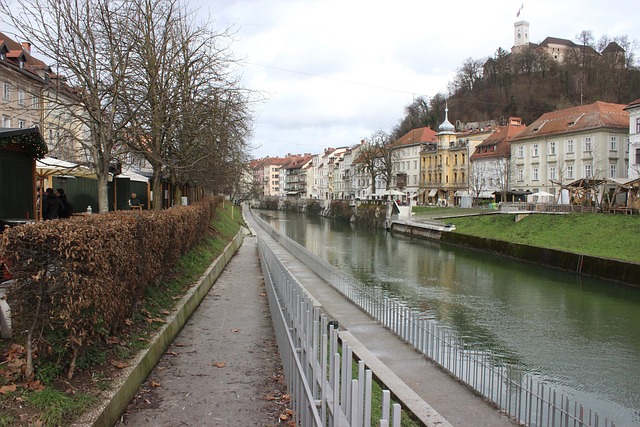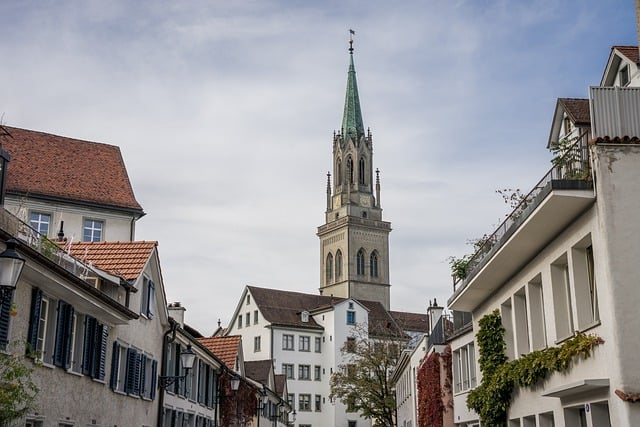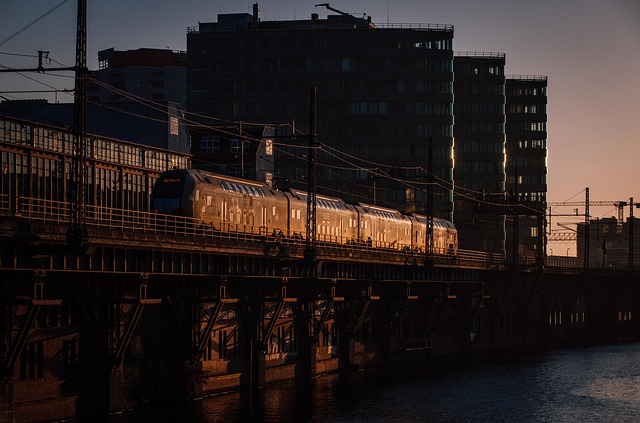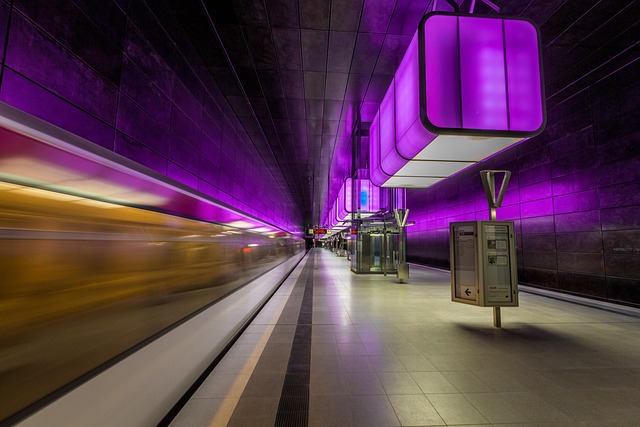Karachi, Pakistan's vibrant metropolis, grapples with severe traffic congestion due to population growth and vehicle proliferation. To address this, a Northern Bypass is proposed as a transformative solution for urban mobility. This new route aims to alleviate congestion on primary roads by offering an alternative pathway, revolutionizing travel times and enhancing connectivity across the city. The project promises significant benefits, including improved road safety, reduced pollution, and economic growth stimulation, while navigating challenges such as complex urban landscapes and environmental considerations. By implementing this bypass, Karachi is poised for a game-changing transformation in its transportation infrastructure.
Karachi, Pakistan’s economic hub, faces chronic traffic congestion, particularly along its southern routes. To alleviate this, proposals for a Northern Bypass access road have gained traction. This article delves into Karachi’s complex traffic patterns and explores the need for this much-anticipated project. We analyze the proposed route, dissect its potential benefits and challenges, and gaze into the future of Karachi’s transportation landscape, highlighting how this bypass could transform daily commutes for its inhabitants.
- Understanding Karachi's Traffic Patterns and the Need for a Northern Bypass
- The Proposed Route: Unveiling the Plan for the Northern Bypass Access
- Benefits and Impact: How This Project Could Transform Karachi's Commute
- Challenges and Considerations: Overcoming Barriers to Construction
- A Glimpse into the Future: Potential Changes in Karachi's Transportation Landscape
Understanding Karachi's Traffic Patterns and the Need for a Northern Bypass

Karachi, as one of Pakistan’s largest and most vibrant cities, is known for its bustling streets and intricate traffic patterns. The city’s ever-growing population and increasing vehicle ownership have placed immense pressure on its existing infrastructure, resulting in heavy congestion and slow travel times. The primary routes often become choked with vehicles during peak hours, causing significant delays and impacting the overall economic productivity of the metropolis.
The need for a Northern Bypass is evident to address these challenges. This proposed route aims to provide an alternative path, easing the traffic load off the main roads. By offering a new access point, it promises to revolutionise travel in Karachi, reducing congestion and enhancing connectivity between different parts of the city. The bypass will play a pivotal role in shaping the urban mobility landscape, ensuring a smoother flow of traffic and potentially transforming the daily commute for folks navigating Karachi’s labyrinthine streets.
The Proposed Route: Unveiling the Plan for the Northern Bypass Access

The Proposed Route for the Northern Bypass Access in Karachi has garnered significant attention, presenting a much-needed solution to alleviate traffic congestion in the bustling metropolis. This strategic plan entails a carefully crafted corridor that aims to provide an alternative route for vehicles, thereby reducing the burden on existing roads. The project envisions a comprehensive network designed to seamlessly connect key areas of the city, offering faster and more efficient travel options for residents and commuters alike.
The route is meticulously mapped, considering factors such as population density, traffic patterns, and land availability. By following this proposed path, the bypass aims to bypass several heavily congested areas, ensuring a smoother flow of traffic. This initiative promises to transform commuting experiences, making it easier for folks in Karachi to navigate through the city’s labyrinthine streets, ultimately enhancing overall connectivity and urban mobility.
Benefits and Impact: How This Project Could Transform Karachi's Commute

The proposed Northern Bypass project in Karachi holds immense potential to revolutionize daily commutes and transportation across the city. By providing an additional access route, it aims to alleviate the heavy traffic congestion that has long plagued Karachi’s roads, especially during peak hours. This initiative promises significant benefits for residents, businesses, and visitors alike, offering faster travel times and improved connectivity between different parts of the metropolis.
The impact could be substantial, reducing travel distances and commuting stress for folks navigating through the bustling streets of Karachi. It is expected to enhance road safety by decreasing traffic density, lessen environmental pollution, and potentially stimulate economic growth by facilitating easier movement of goods and services across the city. The Northern Bypass has the game-changing potential to transform Karachi’s landscape, making it more livable and accessible.
Challenges and Considerations: Overcoming Barriers to Construction

In Karachi, the Northern Bypass access project has faced numerous challenges and considerations that have hindered its construction. One major obstacle is the complex urban landscape, characterized by dense populations and a labyrinthine network of existing infrastructure. Navigating these constraints requires meticulous planning and innovative solutions to ensure minimal disruption to the bustling metropolis.
Additionally, environmental concerns play a significant role in the project’s timeline. The region’s eco-sensitive areas demand careful management to preserve the area’s vibrant tapestry while constructing much-needed access roads. Overcoming these barriers necessitates collaboration between urban planners, engineers, and environmental experts to find sustainable, game-changing strategies that align with Karachi’s dynamic nature.
A Glimpse into the Future: Potential Changes in Karachi's Transportation Landscape

Karachi, as Pakistan’s economic hub, is constantly evolving, and its transportation infrastructure plays a pivotal role in shaping its future. With the proposed Northern Bypass access, the city stands on the brink of yet another transformation. This ambitious project promises to reconfigure travel routes, potentially reducing congestion and enhancing connectivity across various neighborhoods. As Karachi continues to grow and develop, it’s inevitable that its transportation landscape will adapt to meet the demands of a bustling metropolis.
The implementation of this bypass could lead to a more efficient and sustainable transport network, impacting not just long-distance travel but also local commutes. By providing alternative routes, Karachi might see a decrease in traffic on existing roads, potentially reducing pollution and improving overall mobility. The future of transportation in Karachi looks set to be characterized by smarter, more interconnected systems, benefitting both residents and visitors alike.
Karachi, a bustling metropolis, is poised for a transformative shift with the proposed Northern Bypass access. This ambitious project promises to alleviate traffic congestion and revolutionize commute times, offering a glimpse into a future where efficient transportation redefines the city’s landscape. By navigating through challenges and considering various factors, the potential benefits—from enhanced connectivity to improved economic opportunities—are undeniable. As the plan unfolds, Karachi is set to embrace a new era of streamlined mobility, leaving behind the traffic-plagued past.


Leave a Reply
You must be logged in to post a comment.